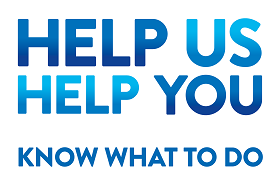New pilot to be launched at Liverpool University Hospital's Emergency Departments
Wednesday, December 1, 2021

A new pilot that will help more patients to be seen at the right place at the right time for their care needs is being launched at Liverpool University Hospitals NHS Foundation Trust.
The Trust’s sites are the latest hospitals to introduce a pilot that will ensure patients arriving at their A&E departments get the right healthcare in the right place.
The pilot further builds on the national NHS 111 First campaign, which was launched in December 2020 and encourages those with non-urgent health needs to contact the service first before attending A&E, to ensure patients can be seen in the right healthcare setting most appropriate to them.
From 6th December at Aintree University Hospital and the Royal Liverpool University Hospital, a care navigator will triage patients on arrival to the Emergency Department and advise the most appropriate place of care for their needs - potentially enabling them to be treated faster and out of a hospital environment.
The Emergency Department will always be available to patients who require emergency care and treatment. Those attending where their care is not an emergency, and where it is safe to do so, may be advised to attend an alternative service in the community more appropriate for their needs, such as a specialist service at the Trust, a Walk-In Centre, GP, or local pharmacy.
Professor John Brennan, Interim Medical Director at Liverpool University Hospitals, said: “Our priority is to always provide safe and quality care to our patients who attend A&E. We’ve seen year-on-year increases of attendances at our Emergency Departments, and as we head into the winter period, these departments will become progressively busier. If you have an emergency or require urgent care, we want our patients and the communities we serve to know that we are open and that our staff are always here to care for you.
“We understand patients are often worried about their health needs and are anxious to be seen quickly when they attend A&E. One of the main benefits we expect to see from this pilot is an improvement in patient experience. Those who do not require emergency care will be advised to attend a more appropriate healthcare setting if it is safe to do so. This should also help to reduce the length of waiting times in A&E for those in need of urgent care, and means our teams are able to focus on patients who attend with an emergency.
“We thank the public for their ongoing support and urge anyone who is in need of emergency care to still attend our A&E as normal.”
If it is an emergency, you should always call 999. If you think you need urgent care or medical advice, but you’re not sure where to go, contact NHS 111 in the first instance, who will direct you to the most appropriate service. There is also lots of advice available for self-care on the NHS website.





